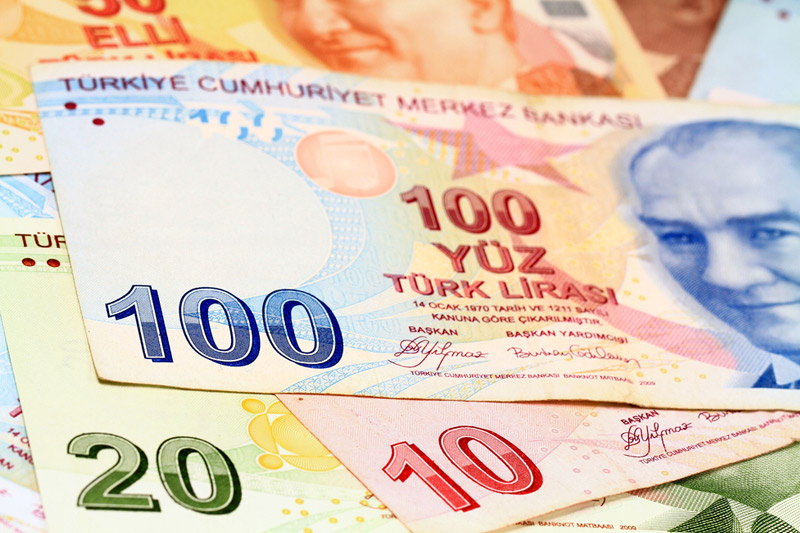Investing.com - The Turkish lira and the Russian ruble extended losses against the U.S. dollar on Thursday, with the Turkish currency falling to a new all-time low against the greenback amid ongoing political jitters.
The U.S. dollar rose to 3.0035 against the lira, the highest level on record, before falling back to 2.9745 during U.S. morning hours, up 1.67% on the day (USD/TRY).
The Turkish lira has been under heavy selling pressure in recent months as a political crisis and mounting fears over terror attacks in Istanbul and violence in the southeast part of the country dampened appetite for the currency.
Elsewhere, the greenback advanced 1.3% to 67.459 against the Russian ruble after hitting a daily peak of 67.544, a level not seen since February, as an ongoing drop in oil prices continued to weigh on sentiment.
Oil prices sank to levels not seen since the peak of the global financial crisis in 2009, after a surprise buildup in U.S. oil stockpiles underlined concerns about a growing global oil glut.
New York-traded oil futures struggled below $41-a-barrel early Thursday, while London-traded Brent prices dropped below $47 for the first time in more than six years, as worries about slowing demand from China and a glut of supply drove down prices.
Meanwhile, the US dollar index, which tracks the greenback against a basket of six major rivals, was down 0.1% to 96.36, after falling sharply on Wednesday, as investors pushed back expectations on the timing of an initial rate hike by the Federal Reserve to December, instead of September.
Minutes of the Federal Reserve's July meeting published on Wednesday showed that policymakers express broad concerns about lagging inflation and the weak global economy, leading some investors to question the likelihood of a rate hike in September.
According to the minutes, Fed officials were concerned about "recent decreases in oil prices and the possibility of adverse spillovers from slower economic growth in China."
Some traders believe the Fed could postpone raising interest rates next month as officials are likely to remain concerned over global growth and inflation pressures due to China’s shock currency devaluation move and weak commodity prices.
